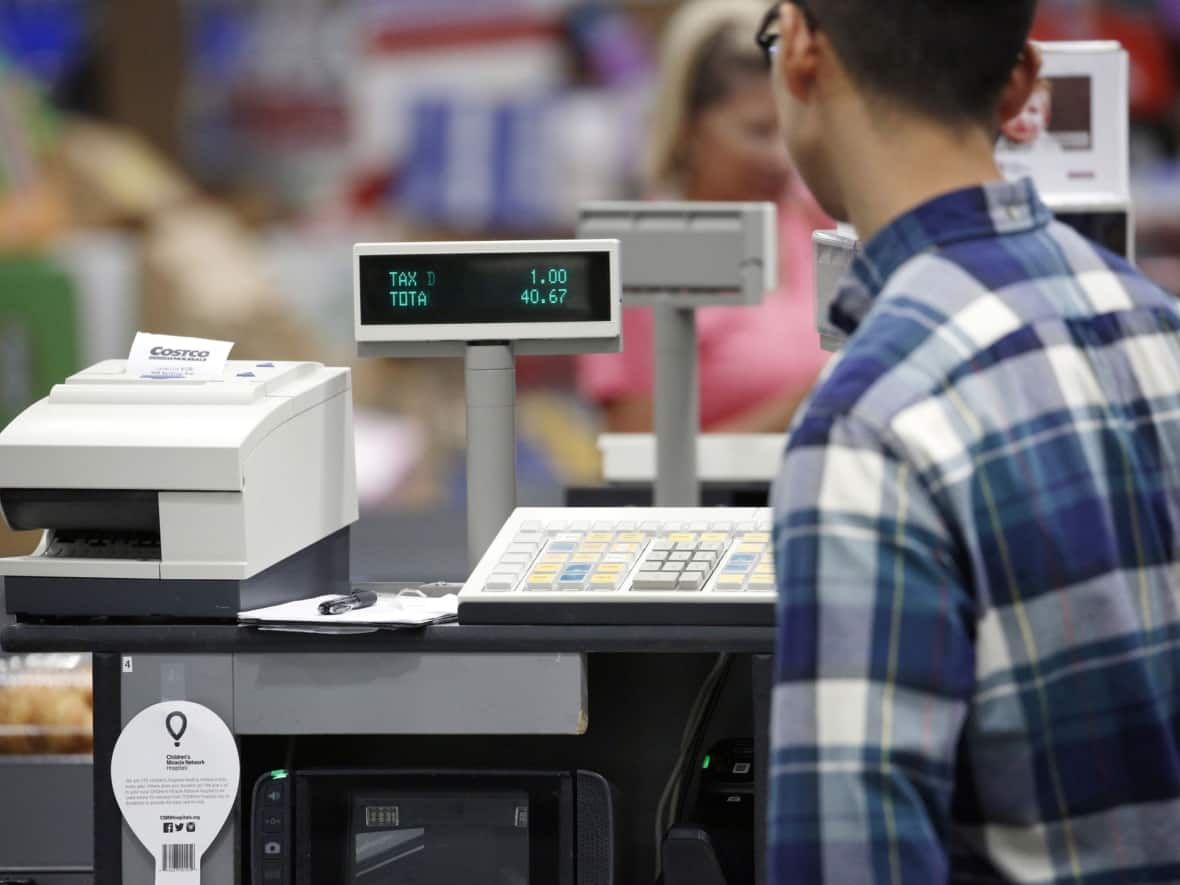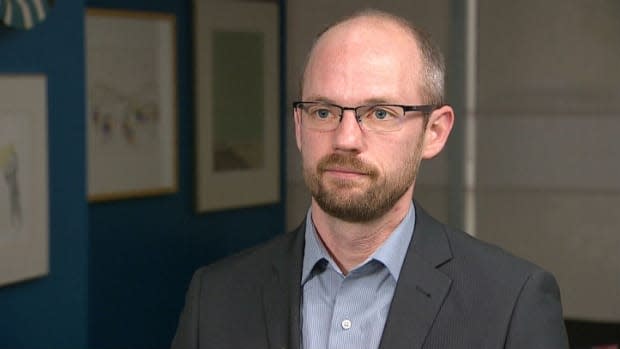What Albertans can expect from the economy in 2023

Last year was a financial roller-coaster, and Alberta probably isn't getting off the ride in 2023. But the province appears in a better economic position than most others to handle the nauseating rises and falls.
Economists and banks are forecasting that heavy inflation, volatile energy prices and geopolitical uncertainty will continue to be factors this year.
"2023 is going to have a lot of uncertainty associated with it, especially for Alberta. Where the province goes economically is tightly related to commodity prices, which are determined by all sorts of global factors," said Trevor Tombe, an economist at the University of Calgary.
Alberta, however, has some tools to help it adjust.
"We're still getting a pretty good boost from our commodity sector in oil and gas and agriculture. So rough waters — can't avoid them — but we'll be able to do a little bit better than other places," said Rob Roach, the deputy chief economist at ATB Financial.
An influx of new Albertans, recovering job numbers and record profits in the oil sector are all positives.
Despite that cushion, the threat of recession still looms.
Eye on inflation
Inflation and the cost of living consistently ranked at the top of polling on Albertans' preoccupations in 2022.
Canada's inflation rate sat at 6.8 per cent at the end November, and Alberta's sat barely lower at 6.6 per cent (down from a high of 8.4 per cent in June).
All categories of goods were more expensive in the province last year. Food (10.6 per cent) and transportation (7.1 per cent) increased the most, according to the province.
Inflation is expected to remain high for most of 2023.
"Where inflation goes is a big open question, not uniquely in Alberta, but that's the most important thing to watch," Tombe said.
He expects inflation will likely fall to around three per cent by the end of the year, which is close to normal levels.

Even if things stay relatively stable on a provincial level, Roach said people will still feel the sting in their wallets.
"Alberta will do better, but we're still going to feel it especially at the individual household level, those higher interest rates and ongoing inflation," he said.
The Bank of Canada raised its overnight rate to 4.25 per cent in December, a level not seen since 2007, in an effort to curb spending and lower inflation.
Weathering a recession
Many private sector forecasts assume a short, mild recession in Canada this year.
If a recession hits, what causes it will determine how Alberta could fare. Economic growth is slowing because of rising interest rates and high energy prices, according to Tombe.
"Alberta is a large producer of this commodity that's now much higher in price … and so it's not a drag here, it's a net benefit," he said.
"But if oil prices fall dramatically, say due to a large recession in the United States, then that will have a disproportionately negative effect on Alberta than elsewhere."
ATB Financial forecasts Alberta's real GDP growth will be around 2.8 per cent this year — likely to be the highest in the country. CIBC's 2023 forecast puts the national growth at 0.6 per cent.
Oil prices good, but this isn't a boom for jobs
For a province familiar with booms and busts, economists warn this success cycle won't feel the same for workers.
While prices have been high, that's not translating into the same activity past booms have delivered to the province. Oil companies are raking in record-setting profits but aren't reinvesting the money in projects the way they used to.
Between limited pipeline capacity and no other big projects (besides the Trans Mountain expansion that will triple its capacity) anticipated in the next few years, Roach said the oil companies aren't spending like they used to.
"There isn't a lot of reason to invest that in expanding production," he said.

Oil prices have been on a steady decline for months after hitting yearly highs well over $100 a barrel, but Alberta can balance its budget on prices around $70 US. The price for WTI, a benchmark for crude oil, has been hovering in the low 70s for the last week.
Welcome to Alberta
Alberta is seeing a different boom — not one of natural resources, but of people.
The province had its largest population growth ever this year, adding 60,000 people between July and September.
"It looks like strong growth this year is attracting more people to the province, keeping more people here. So that boosts our population growth, which is good for retail sales, good for overall economic growth, good for the housing market, " Roach said.
At the same time, the province has been struggling with a labour shortage. It has shown signs of levelling off, but significant improvements aren't expected in 2023.
Alberta gained almost 94,000 full time jobs in 2022, according to the province. Long-term unemployment is down, too, moving it in line with the national average.
ATB expects the unemployment rate to remain much the same over the next two years, around 5.8 per cent. National unemployment was five per cent in December.
Economic picture vs provincial coffers
Alberta is forecasting a surplus of $12.3 billion for the 2022-23 fiscal year after it pulled in a record amount in natural resource royalties. It was one of the biggest economic turnarounds in the province's history.
"We expect Alberta to remain an economic leader, which will lead to continued population growth, job creation and wage growth in 2023," Finance Minister Travis Toews told CBC News.
"While high inflation, rising interest rates and geopolitical unrest are weighing on global economic activity, we remain well positioned to weather any challenges that may come our way."
Alberta's economic recovery has been strong, just like elsewhere in the country. It's the provincial reliance on natural resources that might encounter some hiccups in 2023.
"The relevant roller-coaster is not the economy, it's our public finances," Tombe said.


